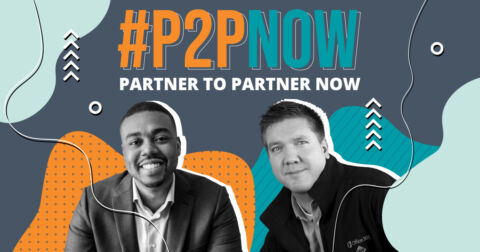Applying for Microsoft certifications–especially when you aren’t sure of the direct benefits they’ll provide–can seem somewhat daunting. So before you go down that road, it’s worth confirming what types of certifications there are, which might suite your team the best, and how worthwhile they are to pursue.
In this episode of P2PNow, we take a look at all three of these questions to help you determine how important Microsoft certifications might be to your organization. Feel free to watch the video or read the full transcript below!
Transcription
Sam: The question for this episode is “How important are Microsoft certifications?” I hear this a lot from partners. Or, more specifically, I hear “How important are certifications as a Microsoft and AvePoint partner?”
Christian: I agree that this is an important topic, and I hear variations of the question all the time. It’s usually followed by the question “What is the difference between certifications and competencies?”
Sam: Maybe we start with the question of “What are Microsoft certifications?” And why does Microsoft care about certifications?
Christian: There are a wide variety of certifications available through Microsoft Learn. Microsoft divides them into three certification paths:
- Fundamentals, which is a great place to start to get a solid understand of a technology
- Role-based, which is where developers, admins, and analysts can really begin to do a deep dive into the technology and develop a specialty, and
- Expert certifications, which can be used to further develop your skillset but also helps set an individual or company apart as an expert in that area.
Sam: A great example of these certs is Azure Fundamentals. I’ve seen many within my network on LinkedIn post this or similar achievements to their profile.
As an individual, this is a great way to showcase technologies that are core to your role, as well as to your business. But what is the role of certifications to your status as a Microsoft Partner, and as an AvePoint partner?
Christian: Great question, and an important distinction.
Certifications are about the individual. For example, if I were a Data Analyst for a partner supporting Dynamics 365, I might pursue certifications in Azure Fundamentals, Customer Data Platform, and Power Platform App Development.
Sam: As Individual certifications, right?
Christian: Right. And individual certifications combine together to help your company achieve competencies.
For example, my company might be focused on achieving competencies in Data Analytics and Data Platform. To achieve Silver or Gold competencies in either, my company must have multiple personnel who have completed and maintained these individual competencies.
Sam: Microsoft, of course, emphasizes with these partner competencies, or the need for these competencies, because it ensures that there are partners in every region in the world who have certain skills available. “Proven” or “demonstrated” skills, I should say.
Christian: Exactly. And while AvePoint does not have this same requirement in place for OUR partners to have Microsoft competencies, we do recognize these Microsoft competencies. It makes it easier for us to partner with companies to understand how to align our own products and services.
Sam: As AvePoint continues to grow and expand, we do have programs in place for developing partner knowledge. Many partners develop “competencies” around AvePoint solutions. As part of the onboarding process, we cover many of these program offerings and are continuing to invest in the growth and development of our partners.
Christian: Exactly.
Sam: Well, thanks for highlighting the differences between certifications and competencies, Christian. And to learn more about AvePoint solutions as a partner, be sure to join AvePoint’s Partner Program, which you can find at www.avepoint.com/partners.


